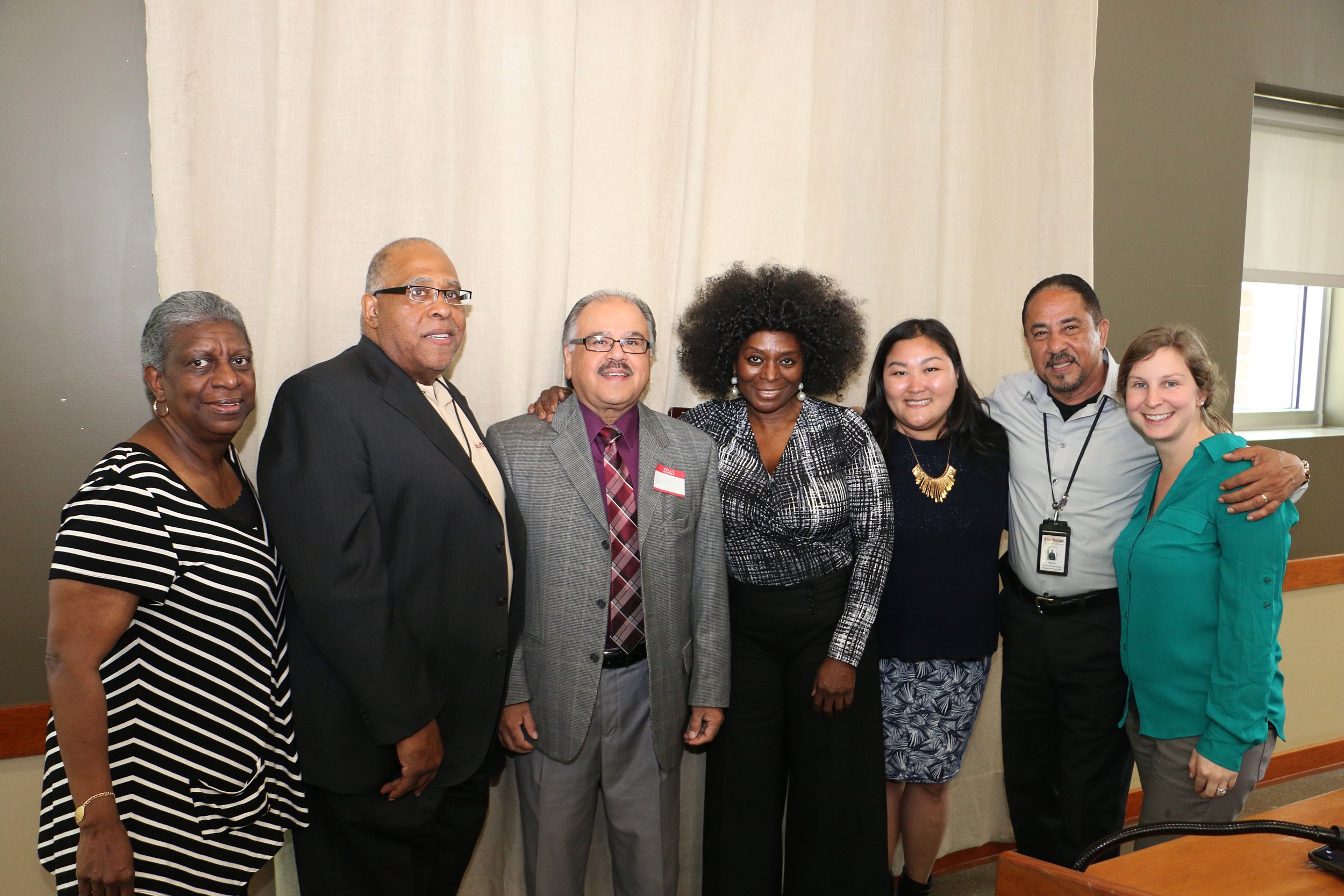
Diabetes, What you need to know.
The Minnesota Department of Health and the Hue-MAN Partnership strive to improve the health of young and middle-aged men in our communities.
FAQs
Small Decisions Matter
Chances are that you or someone you know is dealing with diabetes. It’s a serious issue in our community. Diabetes is the 8th leading cause of death for all Minnesotans but is the 5th leading cause of death for Black and African American Minnesotans. According to the Minnesota Department of Health (MDH), diabetes is also the leading cause of leg amputations, kidney failure, and blindness. Diabetes is real. But small decisions can help prevent it or make it more manageable. Knowing the facts can make all the difference.
Diabetes is a serious condition affecting nearly 37 million Americans. All forms of the disease are caused by blood sugar levels that are higher than normal. This is a result of the body not producing or properly using insulin, a hormone that converts food into energy needed by the body.
Among Black men, the prevalence of type 2 diabetes has increased 160% between 1980 and 2020.
There is also a greater risk for men of color to develop type 2 diabetes and having complications once diagnosed when compared to white men.
Black men also experience more complications due to diabetes than other groups.
The Minnesota Department of Health states that men of color living in Minnesota are 2-5 times more likely than Asian and non-Hispanic whites to have diabetes.
The Different forms of the Disease:
Type 1 diabetes – an autoimmune disease most often seen in children but can happen at any age. People with type 1 diabetes must take insulin daily to live.
Type 2 diabetes – the most common form of diabetes found in 90-95% of people with diabetes. When the body stops using insulin appropriately, it’s a gradual process, so many people have no symptoms at first. Type 2 is now being seen in children and young adults due to obesity and other risk factors.
Gestational diabetes – a condition where blood sugar levels are higher than normal during pregnancy. Blood sugar levels usually return to normal after your baby is born, but it increases the risk for type 2 diabetes later in life for you and your baby.
Prediabetes – occurs when blood sugar levels are higher than normal but not yet high enough to be diagnosed as diabetes. Prediabetes can develop into type 2 diabetes but is thought to be reversible with lifestyle changes.
Diabetes complications can affect nearly every part of the body. If blood sugar, blood pressure, and cholesterol are not kept within a healthy range, people are more likely to experience poor health and an early death.
From what you eat to how you move, small decisions matter.
Move your body, even for as little as 15 minutes each day.
Drink water instead of soda and other sugary drinks.
Eat fruits or veggies wherever you can squeeze them in. They can be great snacks, too! Talk to a health care provider about your diet, physical activity, and medications.
For more information about diabetes, visit the MDH Diabetes webpage.
You can also contact MDH by phone at 651-201-5435 or email at health.diabetes@state.mn.us


Our Work Through Video
Minnesota Philanthropy Partners' Nonprofits to Know™ video series is proud to feature St. Paul Clippers N' Curls for the Heart, a project of Southside Community Health Services. Southside is a nonprofit that provides quality health care to under-served, uninsured and under-insured communities at clinic sites and with mobile outreach. The Clippers N' Curls program works with barbers and hairdressers in three Saint Paul neighborhoods to offer their clients blood pressure screenings and, if necessary, referrals to a primary care facility.
To learn more about Clippers N' Curls Saint Paul, visit http://www.health.state.mn.us/divs/hpcd/chp/cvh/connection.html
Hue-Man Partnership Saving Young Lives
Clarence Jones has worked for years to keep us and our communities healthy, and he continues to do so! Clarence is the Executive Director and Community Engagement Strategist of the Hue-MAN Partnership- a coalition of collaborators that strengthen community health through innovative partnerships. He is also an Adjunct Instructor of Medicine at the Mayo Clinic. Clarence has a long list of committees, programs, and projects that he has worked on and received many local and national awards.
Stream more episodes: https://www.bottomlesscoffeeshow.com
Connect with Jerome: https://www.jerometevans.com
The Minneapolis Health Department recognized Local Public Health Heroes in an award ceremony on April 17, 2024.
Minneapolis Health Department co-designed and co-piloted storytelling as a new community engagement process to inform the
department’s health policy and programmatic work for the well-being of city residents. This process involved completing and video recording a series of intergenerational storytelling events from December 2006 to June 2007 in multicultural communities:
African American, American Indian, Caucasian, Hmong, Latino, Somali, and Vietnamese.There is a workbook that goes with the video available on our website: www.minneapolismn.gov/health
Partners In Prevention Clinic
Prediabetes is a serious health condition where blood sugar levels are higher than normal, but not high enough yet to be diagnosed as type 2 diabetes. Approximately 98 million American adults—more than 1 in 3—have prediabetes. Of those with prediabetes, more than 80% don’t know they have it. Prediabetes puts you at increased risk of developing type 2 diabetes, heart disease, and stroke.
For More Info Go to https://www.cdc.gov/diabetes/basics/prediabetes.html
LifeSource Community Partners Reflect on 20 Years of Engagement
Books Written by Hue-Man Partners



















